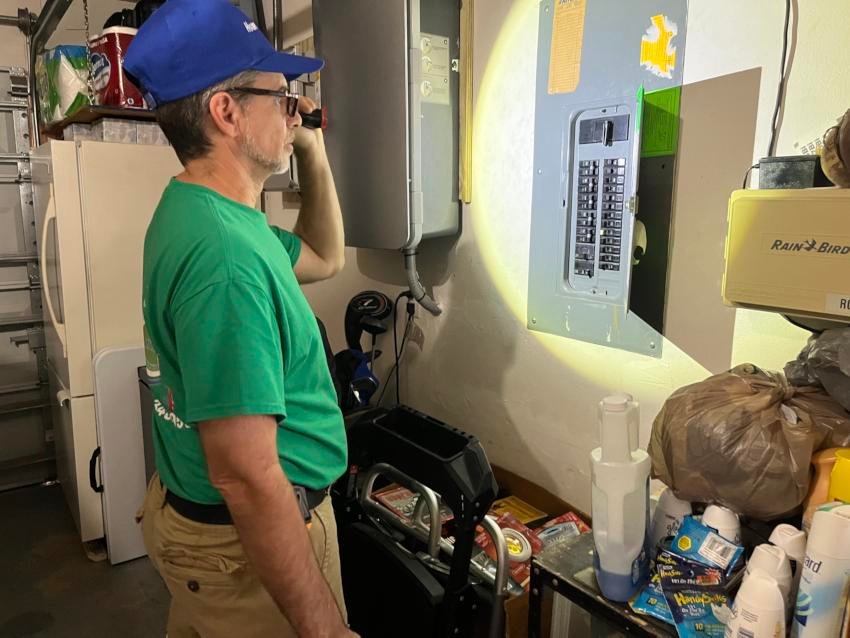Electrical Inspections
Why Regular Electrical Home Inspections are Imperative
Owning a home comes with a lot of responsibilities, including maintaining its electrical systems. Electrical problems can lead to serious hazards such as fires, electrocutions, and damage to appliances and electronics. That's why it's crucial to have regular electrical home inspections.

What is an Electrical Home Inspection?
As a certified home Inspector, we conducts a comprehensive evaluation of your home's electrical system, an electrical home inspection. The electrician examines all electrical components, such as wiring, switches, outlets, panels, and grounding systems, to identify potential hazards and confirm proper functioning.
Benefits of Regular Home Inspections
Inspections are important
Electrical systems that are in poor condition or have not been installed correctly can pose a serious fire hazard or electrocution risk. An electrical inspection helps ensure that your home's electrical system is safe and up to code.
Knowing that your electrical system is in good condition gives you peace of mind and helps you avoid potential electrical emergencies.
Identifying and fixing electrical problems early on can save you money in the long run. If left unchecked, small problems can grow into bigger and more expensive issues.
An electrical inspection gives you peace of mind knowing that your home's electrical system is in good condition and that you and your family are safe.
Regular inspections can help you avoid costly repairs and replacements down the road. When to Schedule an Electrical Home Inspection
An electrical inspection is an important aspect of home maintenance and safety that should not be overlooked.
Inspections look for:
- Electrical panels and circuit breakers: Checking for proper sizing, labeling, and functionality of electrical panels and circuit breakers.
- Wiring: Checking for proper wiring installation, grounding, and bonding.
- Outlets and switches: Checking for proper installation, grounding, and functionality of outlets and switches.
- Ground fault circuit interrupters (GFCIs): Checking for proper installation and functionality of GFCIs.
- Smoke detectors: Checking for proper placement, operation, and inter connectedness of smoke detectors.
- Lights: Checking for proper placement, operation, and wiring of lights.
- Electrical capacity: Checking for adequate electrical capacity to support current and future needs.
F.A.Q.
- How often should I have an electrical home inspection?
- It’s recommended to have an electrical home inspection at least once every three years.
- Who should perform an electrical home inspection?
- A licensed and certified electrician should perform an electrical home inspection.
In Conclusion
Regular electrical home inspections are a crucial part of maintaining the safety and efficiency of your home. By identifying potential hazards and making any necessary repairs, you can ensure that your electrical system is functioning properly and keep your home and family safe. Don't neglect this important aspect of home maintenance - schedule an electrical home inspection today.
Electrical Inspections